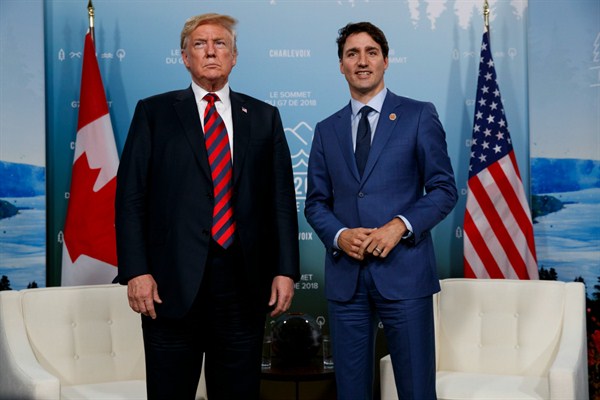The new president that Mexico elects this weekend will not take office until Dec. 1, which means there will be little progress for the rest of the year in the negotiations between Mexico, Canada and the United States on a new and “improved” North American Free Trade Agreement. By December, American voters will have elected a new Congress that might have at least one house under Democratic Party control when it convenes next January. And later in 2019, Canadians will hold their parliamentary elections. The electoral calendar often poses challenges for trade negotiators because politicians are loath to make concessions that can be exploited by opponents. In this case, the coming delays are not necessarily a bad thing.
The three possible outcomes for the Trump administration’s push to “fix” NAFTA are obvious and have not changed after nearly a year of negotiations: a revised, updated agreement; a Trump order to withdraw; or no consensus, with the existing deal remaining in place. From the beginning, I have thought the third outcome the most likely. The course of negotiations so far, combined with recent events, give me no reason to change that view.
The initial goal for concluding the negotiations was the end of 2017, before the Mexican presidential campaign went into high gear. Then the target day was mid-May, after which the procedural rules for approving trade agreements in the United States would preclude the current Congress from doing so. Those deadlines always seemed unrealistic given the deep differences over key issues. As of early spring, negotiators had reached agreement on just six relatively minor and generally hortatory chapters: sanitary and phytosanitary standards for food and agricultural products, good regulatory practices, publication and administration, competition policy, small and medium enterprises, and anti-corruption.

